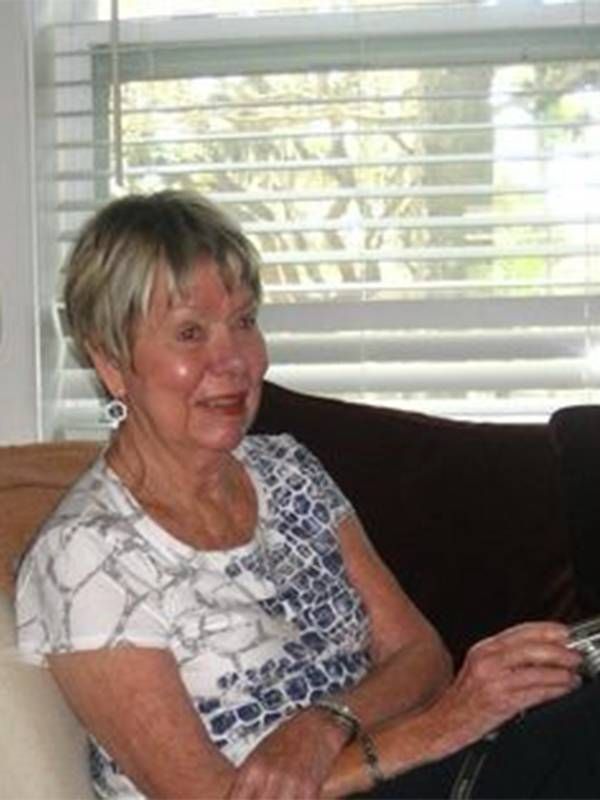Could Eldercaring Coordination Be the Answer to Guardianship Problems?
The novel approach of eldercaring coordination shields older adults from family conflict
When contentious issues about child custody, support payments and visitation drove divorced parents to court, Linda Fieldstone saw how a process called parenting coordination helped defuse conflict. Fieldstone, a supervisor in the 11th Judicial Circuit Court in Miami, witnessed many difficult cases that benefited. Then, a light bulb went on: Why wasn't something similar happening with older adults drawn into painful legal battles with their relatives and caregivers, often involving guardianship or conservatorship?

Working with the Florida chapter of the Association of Family and Conciliation Courts, Fieldstone convened a coalition of groups involved in guardianship and conservatorship cases throughout the country: attorneys, mediators, judges, court administrators, social workers and guardians.
"We have found what the elders really want — those who can be vocal about it — is just for their family to get along."
Beginning in 2015, they developed a program that would let judges appoint a neutral professional in cases with high levels of conflict. Coalition members put together boilerplate materials so any court could implement the program. Next, they created a training for this new group of professionals and began educating them.
With that, eldercaring coordination was born.
It has since expanded to four other states beyond Florida: California (Orange County), Idaho, Maryland and Ohio, and it's pending in Michigan.
"In many of the courts (nationwide), families that are having issues with the care and safety of an older adult go to the civil court, not the family court, so they are not treated the same way that younger families are treated," Fieldstone said. "They're treated more like an entity, a business. But court breeds mistrust. Court breeds more vendetta. When you go to court, it's to win. We have found what the elders really want — those who can be vocal about it — is just for their family to get along."
An Alternative to High-Conflict Guardianship
Guardianship (sometimes called conservatorship) is a legal determination that an individual is not capable of handling his or her own personal affairs, financial affairs or both. The court-appointed guardian (or conservator) is given decision-making authority.
Eldercaring coordination cases often stem from a guardianship, due to the high level of conflict that can occur in that situation.
In eldercaring coordination, the judge recognizes that the issues involved in the case can be better handled in a private setting with the focus on what's best for the older adult. The judge issues a court order that the family meet with the eldercaring coordinator: a professional whose hourly fees vary (many work on a sliding scale) and are typically paid by the family members.
In Florida, for example, those fees range from $75 to $175 per hour; eldercaring coordinator fees are usually lower than what attorneys charge.

Unlike mediation, where the warring factions might meet once or twice to resolve a dispute, an eldercaring coordinator can be appointed for up to two years.
Page McGivern, 61, of Tallahassee, said eldercaring coordination was a useful process for her family. In 2015, her mother, Elizabeth Ziegler, was diagnosed with Creutzfeldt-Jakob disease, a fatal brain disorder that typically progresses quickly. Ziegler was in a second marriage to a man who also had children.
McGivern said her stepfather was in failing health himself and that her mother was not safe — on one occasion, she accidentally cut herself badly with a kitchen knife. There were also arguments about money between the two groups of adult children.
"It was all the messy family things that sometimes happen," McGivern said. "Tempers run high."
The eldercaring coordinator acted as an effective liaison and helped the family work toward consensus, McGivern said. "It got us focusing on solutions," she noted.
Hearing the Older Adult's Voice
Fran Tetunic works as an eldercaring coordinator in Palm Beach, Fla., in addition to being an attorney and director of the Alternative Dispute Resolution Clinic at the Shepard Broad College of Law at Nova Southeastern University.
Since the primary role of the eldercaring coordinator is to ensure the older adult's voice is heard and respected, when Tetunic is assigned a case, her first step is to talk with that person (if they're able to communicate).
"It's critically important that we recognize that even though someone might be alleged to be incapacitated, it doesn't mean they don't have important views on what they want and what they need and how they would like to spend the rest of their days," Tetunic said.
Someone who might not be able to manage some of the financial pieces will still know who they would like to do things such as accompany them to the doctor, help them make decisions and lunch with, Tetunic added.
"Being told you're incapacitated... is very traumatizing and detrimental to the family relationships."
The next step is meeting with the family members (during COVID-19, such meetings have been done virtually) and encouraging them to really listen to each other and take into account the older adult's wishes while keeping them safe.
Often, tensions rise when people feel a relative is not sharing information, so Tetunic emphasizes transparency.
She thinks the ideal process would be for certain cases to be referred to eldercaring coordination before the court decides someone requires a guardian.
"It's very possible that someone has advance planning documents (and so) wouldn't need a guardianship," Tetunic said. That avoids a great deal of potential distress. "Being told you're incapacitated — having your family members say how you can't handle anything, you can't do things — is very traumatizing and detrimental to the family relationships."
Fewer Headaches for Judges
When Judge Michelle Morley first heard about eldercaring coordination, she was "elated," she said.
Morley had spent more than two decades practicing guardianship law before being elected to Florida's Fifth Judicial Circuit Court in 2006. She helped get pilot eldercaring coordination programs off the ground in Florida, Ohio, Idaho and Minnesota.
"This is exactly what these families need: to stop spending money fighting each other and focusing on the negative attributes... and instead focus on what their loved one needs," Morley said. "Because they all want what's best for that loved one. They just have a different lens to view that through."
Best of all, she said, eldercaring coordination helps keep older adults from feeling like they're causing their family to fight.
Other judges who've tried the process have found it overwhelmingly positive. Six out of six surveyed by Virginia Tech University indicated it was "very effective" overall as an intervention for high-conflict families.
Slow Uptake Among Court Officials
Fieldstone and others have worked for years to spread the word about eldercaring coordination, but it still isn't an option in most states. (The Minnesota pilot ended after the judge who championed it left the bench.)
However, the reception has been enthusiastic in Michigan, which is in the early stages of implementing eldercaring coordination, said Kristie King, association executive of Southeast Michigan Senior Regional Collaborative in Detroit and a proponent.
"As soon as someone hears about eldercaring coordination, they're on board. It's just been really a snowball effect for us," she said. "What's going to matter at the end of the day is making sure we have the court administrators (as well as) the judges … so they know this is another option (they can use)."
For certain judges, though, it's a hard sell.
Some have balked at the idea of ordering a family into eldercaring coordination without a state law authorizing them to do so. Others are simply reluctant to try something new; courts aren't known for swiftly embracing change.
"We have to care about older people; that's really basic."
Sue Bronson, a Milwaukee psychotherapist and trained mediator who worked with Fieldstone and Morley to establish the process, has been working in her home state of Wisconsin to generate interest. Even though she has contacts within the court system, it's an uphill battle, Bronson said.
"I had the family court chief judge help me get a meeting with the probate judges and that took three years," Bronson noted. "So, this is really, really slow."
She blames ageism as one reason for that. "We have to care about older people; that's really basic," Bronson said.
Beyond that, eldercaring coordination advocates say, what's needed is education.
"I think it's just going to take more time than we ever anticipated. but it will happen," said Bronson. "It's just too good for it to not happen."


